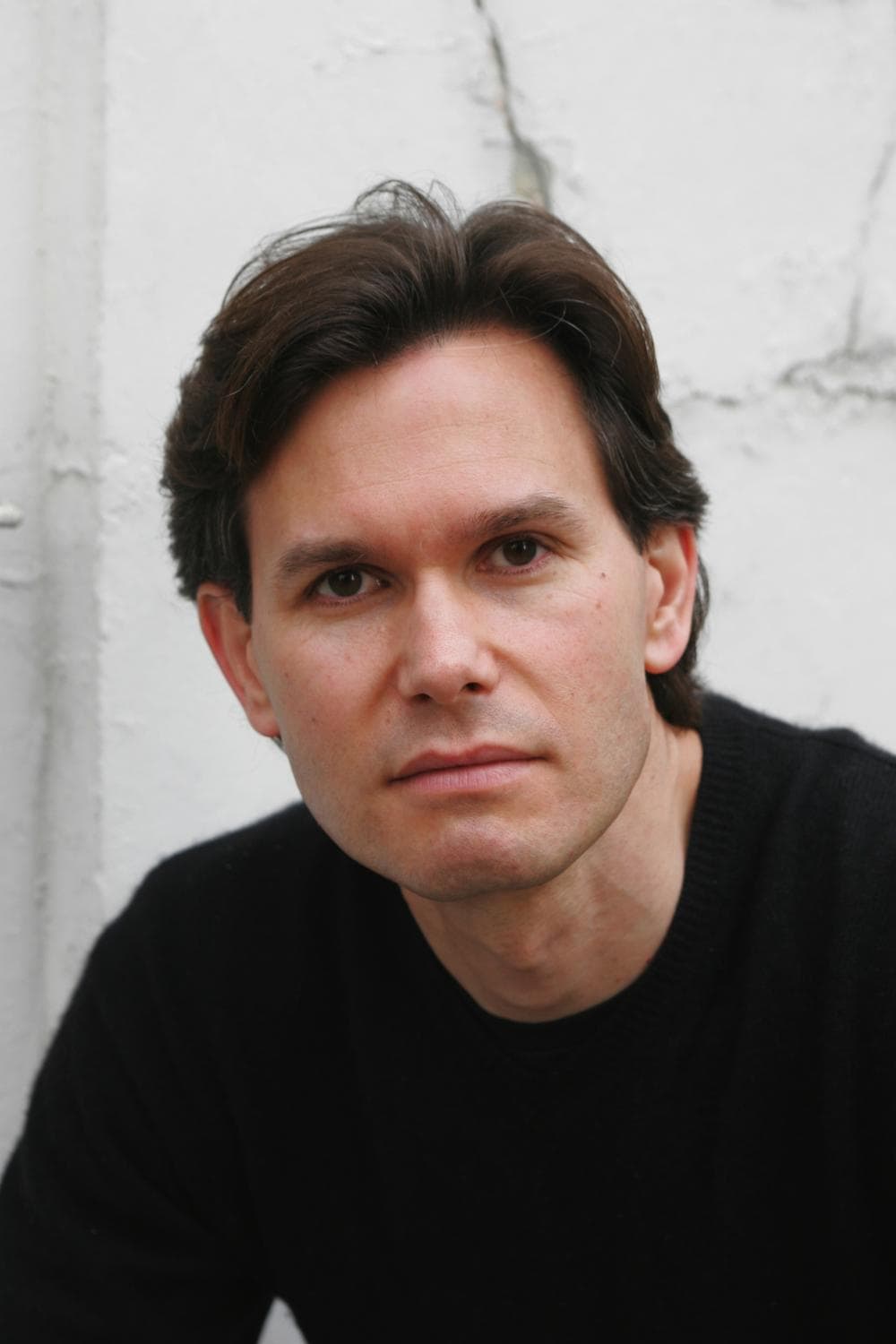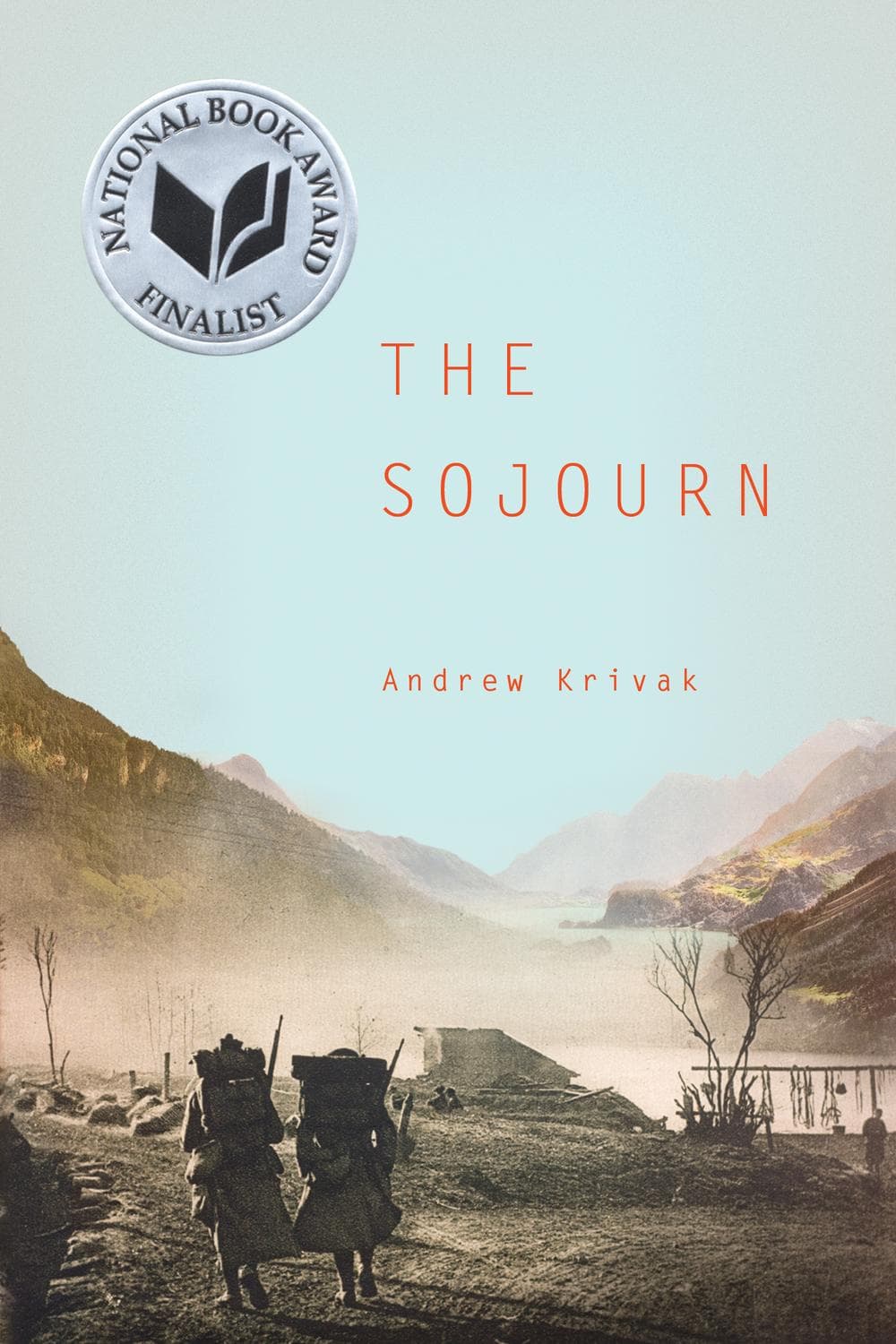Advertisement
Author Mines Family History For WWI Novel

Andrew Krivak of Somerville, Massachusetts, has been nominated for this year's National Book Award for his debut novel "The Sojourn."
It tells the story of Jozef, whose life as a shepherd in rural Austria-Hungary is interrupted by the start of World War I. Jozef becomes a sniper, but eventually is captured and sent to a prisoner of war camp. After the war ends, he makes a trek across the Italian Alps to return home.
Andrew was inspired to write many of the events of the novel by his family history: his grandfather went to war for the Austro-Hungarian army in World War I and survived a POW camp. Andrew says the seed of the novel for him was the question --how did these men survive? Was it some sort of capricious sense of fate? Or did they do something that others didn't?
Book Excerpt: "The Sojourn" By: Andrew Krivak
 My first kill was a member of the Bersiglieri, the elite Italian infantry, though to me he was just a solider who got as close as possible to the forward line on motorcycle and then marched several hundred yards carrying a leather pouch toward a manned trench. Zlee spotted him when he was still on his bike, which made one hell of a racket in the quiet dawn. From our position, and according to orders, we had been expecting only to report on movement that day, but there seemed an arrogance to this man, his arrival, his singular message, the ridiculous cap he wore, which had something like plumage sticking from the top of it, and the rage that I had carried to this war found itself focused. From where we stood behind our shield of rock and dirt, the front was two hundred yards away. I had the man in my sights from the moment Zlee said, “Moving target, five hundred yards.” I’ll lose him when he ducks into a dugout, I thought, but he marched right up and stood in a part of their trench that rose to his shoulders and left his neck and head exposed. I aimed for his ear, just below that goddamn peacock’s head of a helmet he wore, and pulled the trigger.
My first kill was a member of the Bersiglieri, the elite Italian infantry, though to me he was just a solider who got as close as possible to the forward line on motorcycle and then marched several hundred yards carrying a leather pouch toward a manned trench. Zlee spotted him when he was still on his bike, which made one hell of a racket in the quiet dawn. From our position, and according to orders, we had been expecting only to report on movement that day, but there seemed an arrogance to this man, his arrival, his singular message, the ridiculous cap he wore, which had something like plumage sticking from the top of it, and the rage that I had carried to this war found itself focused. From where we stood behind our shield of rock and dirt, the front was two hundred yards away. I had the man in my sights from the moment Zlee said, “Moving target, five hundred yards.” I’ll lose him when he ducks into a dugout, I thought, but he marched right up and stood in a part of their trench that rose to his shoulders and left his neck and head exposed. I aimed for his ear, just below that goddamn peacock’s head of a helmet he wore, and pulled the trigger.“That’s a kill,” Zlee said as I watched the man’s profile disappear, the first life I had ever taken.
I bolted another round, held, and waited. There was scrambling and someone yelled “Cecchini!” A face rose in that same position, this time looking right at me through the crosshairs, as though someone had painted them on his teeth, and I fired.
“Two,” Zlee said, but I knew, and I will tell you that I never once wondered who those men might be, if they were in love with anyone or if they had families. They were the enemy, and they would stand and fight and try to kill as many men as I might pass in the night to or from the trenches that separated us not just in battle but—we were told—by the will of God, and so I killed as I had been instructed and believed that death and death alone would save me.
Five minutes later, short-range artillery destroyed the kaverne Zlee and I had used for cover, but we were long gone from there and saw the damage only when we walked past on our way to another hide two weeks later.
Advertisement
Weeks. That’s how we measured time, a week on patrol there in the mountains surrounding Görz as the winter snows gave way to mud and mist and freezing rain, and a week’s rest, during which we rarely did more than maintain equipment, or travel to Ljubljana, where prostitutes, painted and starving, ducked their heads out from alleyways along the river that ran beneath the castle walls, and they begged us for food when they saw that we were only soldiers with no money, which made me feel lonely and then just made me wish we were back on patrol in the mountains, engaged in the careful measure of a not so different kind of hunt.
By April, our commanders wondered where the Italians would attack, not when. Zlee and I were put into service to determine the extent of troop movements, although there was little we could see because of the constantly poor weather that month, mostly rain, and fog from the spring melt, but also the occasional snow squall when the temperatures dipped fast. On one night, the skies cleared enough to reveal a gibbous moon and offer visibility a few miles across the valley, and that’s when we discovered deserters going over to the Italians.
There was talk—rumors fed by Slav nationalists— that the English and Americans were going to help the Czechs and Slovaks set up a sovereign state, if Austria and Hungary could be defeated. With the fall of Görz and the attrition of soldiers, supplies, and ammunition at the front, it appeared as though the days of the empire’s army really were numbered. For us, though, we were still soldiers of the emperor, and desertion was treason, punishable by death.
“Cleansing,” Major Márai called it. On the last day before we were to march down to a reserve billet, we were called into the company captain’s tent and told that our rest had been canceled. Since we had discovered and reported the desertions, Major Márai had ordered that we perform a cleansing in case any other soldiers were tempted to desert, as well.
“Why didn’t you kill the men when you saw them?” that captain asked us.
Zlee remarked that we had only been spotting, and by the time we were in a position to fire, the targets had made it to safe cover.
“You have one of the best kill records of any sharp-shooter team at the front,” the captain replied. “It’s surprising to think that a target might escape you,” he added, as though taunting us. “Pes. That’s a Slavic name, isn’t it? Are you a Czech?”
Zlee said he was an orphan, and the captain asked if he was mocking him. I begged pardon to explain and said that Zlee had been raised by my father since the two of us were boys. We spoke Slovak and Hungarian equally well, and the emperor had our full allegiance. Zlee just stood at attention, silent.
The captain outlined our orders. We were to set up a hide near the suspected company and wait to see if any other men attempted to cross over. A platoon sergeant, two privates, and a sapper were to accompany us, in order to send up flares and verify any kills, if necessary. I heard Zlee draw breath and waited for him to object to our being sent out with a raiding party in tow, which the captain seemed to expect as well, but Zlee said nothing.
The next night we set our trap, removing guards from that sector under the pretense of a night raid in another. The sergeant who came with us talked too much and kept saying that he could shoot as well as any sharpshooter, and he stomped along behind us over the rocks and fallen trees like an oafish boy in clodhoppers. Then he stopped and lit a cigarette, and Zlee turned and grabbed it from his mouth and crushed it on the ground. The sergeant became furious and shouted at Zlee in the strange stillness of that night, “You are under my command, Corporal Pes!”
“You are under my protection, Herr Stern,” Zlee said. “And I can make a bullet in your head look like it came from the enemy, although I might not have to.”
The sergeant turned to his infantrymen for support, but they were blank. He spat, cursed his disapproval, and the six of us set off again.
Word must have gotten out, because no one or thing showed itself that night, or the next. In the half-light of the early morning of the third day, a scrawny buck leapt over the ground in front of us and the sergeant ordered, “Flare!”
Zlee was the shooter that hour, but he never lifted the rifle from where it rested on his thigh. The sapper fired on command and the flare riffed in a wavering arc into the faint sky and exploded over the ground before us, bathing that entire section of forested battlefield in green light. The deer stood frozen, dived forward, tripped over its front hooves, regained its balance, and sprinted down the mountain toward the Italians as the flare sputtered and dropped. We got our week’s rest after four nights, and when we returned to the line, we hiked through that sector as though it were a worn path or a place forgotten.
Excerpt from The Sojourn. Copyright © 2011 by Andrew Krivak. Published by Bellevue Literary Press: www.blpress.org Reprinted by permission of the publisher. All rights reserved.
This segment aired on November 10, 2011.